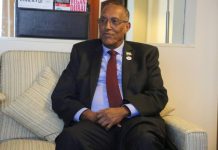The purpose of education has been a contentious issue since antiquity, for Aristotle once remarked, “nobody knows” whether educators train young people with instrumental skills that contribute to their “livelihoods” or “to promote virtue” or in “higher studies” (Armitage, et al., 2003: 22). This Aristotelian educational taxonomy resembles our modern conception of education, where “livelihoods”, “promoting virtues” and “higher studies” are reappropriated as vocational, civic and liberal education respectively. Due to the perennial debates regarding the purpose of education, revisiting this question in this juncture of history might appear to be a pointless endeavour or even constructing a problem that does not exist since education is a globalised enterprise with diverse options and pathways. In my view, it is timely to question the purpose of our education system, problematise these conceptions of education –liberal, vocational, civic – and critique how they are, or not, reflected on our national education system. This short article will explore these issues to, one hopes, unsettle the educational consciousness of our educationalists and policymakers.
The Latin verb Educare, which is etymologically how we have inherited the term education, was historically used to refer to the rearing of children or the physical development of animals in general. In early English, the term retained its Latin denotation and was generally associated with the bringing up of children. However, the industrial revolution introduced the demand of scientific and technical skills to the world, and consequently, the term education acquired certain economic, social and political currency. As a result, mass education and the modern schooling system were brought into being as schools were associated with the acquisition of knowledge, skills and understanding, and by extension economic development. In addition to the technical and scientific knowledge that industrialisation demanded, educating the masses was a political project, in order for the general populace to be entrusted with the novel political participation rights of the 19th century. Therefore, one can safely say that the definition of the term education has transpired to be a ‘preparation for life’ with its complexity and multifaceted dimensions. This etymological reflection and the definition of the term education are crucial for our subsequent discussion to clearly analyse the different conceptions of education.
Despite the 19th century’s political mission of educating the general populace in Western Europe, the small elite that were prescribing the educational remedy privileged liberal education, and it subsequently dominated the school curricula to cultivate and develop the mind and imagination of the next generation. There are different interpretations of liberal education, but in our context, we can be content with any theoretical education that develops critical thinking to enhance human freedom and expression. However, there are different schools of thought in liberal education where some essentialise theory of knowledge (epistemology) and argue that any liberal education should ‘perfect the intellect’ and prioritise ‘intellectual excellence’ by acquiring both theoretical and practical knowledge (Pring, 1993: . The aim here is to generate a ‘gentleman’. Other commentators conceptualise liberal education as a ‘liberation from ignorance’ by not necessarily pursuing theoretical discipline but following diverse educational activities that contribute to both cognitive and affective dimensions of the individual as well as the overall human flourishment. This school of thought is very closely associated with the Platonic conception of education, which is ‘knowledge of the good’ (cited in Peters, 1972: 12). A knowledge that accommodates both cognitive and moral development of the individual where ultimate goal is the generation of a virtuous person. Nevertheless, whatever conception of liberal education one entertains; they both prioritise the acquisition of knowledge for its own sake, or as Peters called ‘disinterested pursuit of knowledge’ and therefore the intrinsic values of education are privileged over the instrumental values (ibid: 11).
However, the critics of liberal philosophers of education question the ‘relevance’ of disinterested pursuit of knowledge in this neoliberal globalised economic arrangement where human capital and productivity is the mere logic of capitalism. In other words, can today’s youth in the developing world entertain the pursuit and possession of knowledge without instrumental ends? Vocational education presupposes that ‘education should be primarily concerned with preparing individuals to be economically productive in the socio-economic context in which they live’ (Bacchu, 1986: 9). Thus, the aims of education cannot be dissociated from their instrumental and economic utility. In our discussion, vocational education refers to the acquisition of knowledge and skills necessary for the preparation of a specialised occupational field. That is to say, the main purpose of comprehensive vocational education curricula should address the economic needs as well as the overall flourishing of the individual. Therefore, privileging theoretical knowledge on philosophical grounds without serious regard of the young peoples’ economic participation to earn a living, as well as a broader contribution of their community, is fruitless academic speculation. Specifically, if the young person lives in a low socio-economic country, the earlier orientation of specialised occupation and the acquisition of work-related skills is essential for their economic independence.
To summarise my argument so far, if liberal education enables young people to engage with the world of ideas, imagination and understanding; vocational education introduces the skills and competencies for economic participation to earn a living. Maybe this dichotomic approach is a misconception for, in a capitalistic economy, whatever educational content one pursues, whatever mental or manual function one participates in, one will be judged according to their economic productivity. In this case, it is difficult to dissociate educational endeavours from economic aims. Having said that, the vocationalisation of education that I am proposing here is not about disregarding intellectual perfection, nor is it the promotion of mere manual skills, but rather the unification of intrinsic and instrumental values of education where young people specialise in worthwhile occupational fields that contribute to their overall cultivation. Whilst the liberal and vocational conceptions of education compete in the secondary and tertiary curricula; personal, social and moral education, which belongs to the domain of civic education, is at best left to the margins of the formal educational curriculum.
Civic education concerns the acquisition of political knowledge and understanding to become agentic, rational and contributing citizenry. Civic or citizenship education has been in the margins of educational syllabi in almost all modern democratic societies because it is not associated with specified forms of knowledge in the secondary schooling system. However, the importance of civic education has been growing with the contemporary proliferation of complex, multicultural democratic societies since the general populace should share common values and possess adequate knowledge of political and institutional arrangements that affect their lives. That is to say, in any democratic system, the public should have political literacy of weighing up the different arguments and debates to influence public affairs and freely elect their political representations. Civic education should also entail personal, social and moral education that not only facilitates individual flourishing but contributes to the universal betterment of the community. In other words, civic education should develop autonomous subjects with civic virtues. Therefore, young peoples’ understanding of political institutions is not the only reflection of their own actions and judgements but also an understanding of other minds to achieve both personal and collective projects. The political education of the citizenry also has a global perspective so that the young people do not only understand and influence the local or national political arrangements but critically question global affairs because the dynamics of this interconnected globalised world somehow impacts us all. Consequently, agentic global citizenry question and oppose global economic and political injustices, environmental degradations, designed political conflicts, racial inequalities, etcetera.
The question is then, in the Somaliland context, do we need a specific subject dedicated to the development of civic virtues, political understanding and awareness; or do other bodies of knowledge, such as history, geography and literature supplement this gap? Can media take these responsibilities, or is this proposition a fertile ground for indoctrination? Recent Somaliland elections of local and national legislature imply that there is no need for political education since young adults have demonstrated profound political maturity and freedom concerning the election of Abdikarem Ahmed Mooge. Whether this seismic political rupture is a sole occurrence or a sign of future political patterns requires empirical enquiry, but what is evident in this experience is the demonstration of young peoples’ political agency to shape and influence the political directions of their communities. This recent election also reminds us of the erudition of classical anthropology highlighting that the Somali-speaking society is always conscient about the political and cultural matters surrounding them, and therefore, formal instruction of political enlightenment does not necessarily advance our political literacy. Nevertheless, there is a dimension of civic education that necessitates further exploration in our political and cultural context. This dimension of civic education foregrounds co-operation, tolerance, active listening, and the reflection of other viewpoints and consequences of our actions on others. Let me put it another way, if we want to live in a civilised society we do not have to only consider self-regarding (our rights) but also other-regarding (our responsibilities) since our relationship with others exemplifies the kind of society we are.
The purpose of this reflection is to highlight the different conceptions of education whilst analysing how they were traditionally assigned to different dimensions of human development, for liberal, vocational and civic education were associated with intellectual, economic and political engagement, respectively. However, as I have demonstrated throughout my analysis, any educational purpose that separates these dimensions of human cultivation is superficial and unsustainable since every person requires the development of mind, morality and livelihoods. The next question is what roles do the different levels of our educational institutions play, implicitly or explicitly, in the cultivation of these concepts of education. This will be explored in our next contribution.
—————– —————- —————
Abdirazak Osman is an educational and social commentator who is particularly interested in theories and philosophies of Education.
References
Andy Armitage, et al., (2003) Teaching and Training in Post-compulsory, Abington: Open University Press.
Bacchu, K. (1986) The Success of Vocationalisation Depends on the Political Context, in Vocationalising Education Conference, Institute of Education: London, 7-9 May 1986.
Peters, R. (1972) Education and the educated man, in R.F. Dearden, P.H. Hirst and R.S.
Peters (eds.) Education and the development of reason, London: Routledge and Kegan Paul.
Pring, R. (1993) Liberal Education and Vocational Preparation, in R. Barrow and P. White (eds.) Beyond Liberal Education, London: Routledge.























